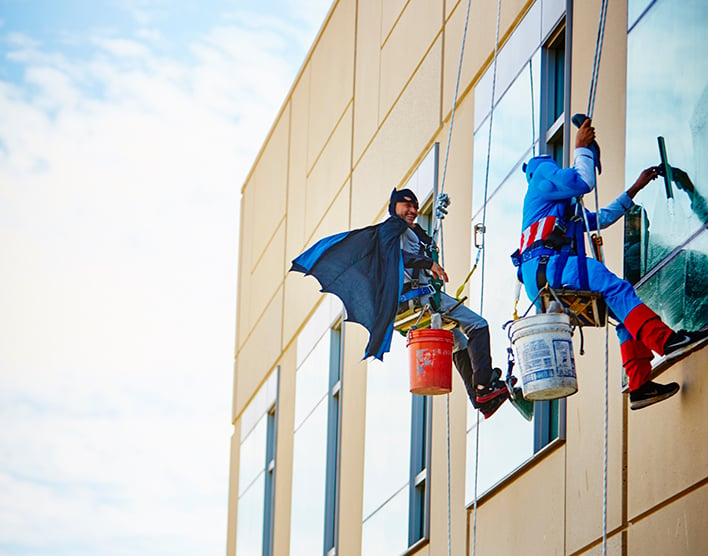
Epilepsy Program
The Pediatric Epilepsy Center of Excellence specializes in diagnosing and treating epilepsy in children of all ages, from newborns to teens. Our team is made up of pediatric epileptologists (pediatric neurologists with certification and advanced training in epilepsy care) as well as experts in pediatric neurosurgery, pediatric psychiatry and neuropsychology, nutrition, social work and other fields, all focused on treating and supporting young patients with seizure disorders.
In recognition of our comprehensive specialized care, the National Association of Epilepsy Centers has designated our San Francisco clinic a level four epilepsy center (the highest possible rating).
We specialize in early-onset epilepsy; seizure disorders that don't respond to standard treatments; and rare forms of epilepsy, including neonatal seizures, infantile spasms, Dravet syndrome (SCN1A), PCDH19 epilepsy and gelastic (laughing) seizures.
Controlling a seizure disorder starts with the right diagnosis. To that end, our doctors use the most advanced testing techniques available, such as magnetic resonance imaging (MRI), functional MRI, positron emission tomography (PET) scans, magnetoencephalography (MEG) scans (offered by few other programs) and neuropsychological assessments. For difficult-to-diagnose cases, we may use electrical studies to record and examine brain waves, placing electrodes on the scalp or the brain surface. As a result, we can often detect and diagnose epilepsy in its earliest stages.
Our goal is to develop the best possible treatment plan for each child. We draw on the full range of therapy options, including medications, customized ketogenic diets, surgical procedures, laser ablation, and implanted devices for vagal nerve stimulation or responsive neurostimulation.
In addition to approved state-of-the-art epilepsy treatments, our patients have access to clinical trials evaluating promising experimental therapies, as well as our support services, such as child psychology, special education and group therapy sessions. We work with many patients from other states or overseas and are happy to assist with coordinating insurance.
Our locations (3)
Our team
-

Joseph E. Sullivan
MD
Pediatric neurologist and epilepsy specialist -

Kurtis Auguste
MD
Pediatric neurosurgeon -

Danilo Bernardo
MD
Pediatric neurologist and epilepsy specialist -

Khyati Brahmbhatt
MD
Pediatric psychiatrist -

Marisa Gardner
MD
Pediatric neurologist and epilepsy specialist -

Ernesto Gonzalez-Giraldo
MD
Pediatric neurologist and epilepsy specialist -

Nalin Gupta
MD, PhD
Pediatric neurosurgeon -

Winson S. Ho
MD
Pediatric neurosurgeon -

Ali Mostajelean
MD
Pediatric neurologist and epilepsy specialist -

Adam L. Numis
MD
Pediatric neurologist and epilepsy specialist -

Roxanne Simmons
MD
Pediatric neurologist and epilepsy specialist -

Nilika Shah Singhal
MD
Pediatric neurologist and epilepsy specialist -

Clare Timbie
MD, PhD
Pediatric neurologist and epilepsy specialist -

Nicolle Napier-Ionascu
PsyD
Neuropsychologist -

Brianna M. Paul
PhD
Neuropsychologist -

Kristin Adkins
RN, BSN
Nurse coordinator -

Elizabeth DaCosta
PA-C, MPH
Physician assistant -

Desiree Dieste
MSW, MPH
Pediatric social worker -

Sarianne H. Madsen
RD
Dietitian -

Marian Roan
RD, MPH
Dietitian -

Camron Scott
RN, BSN
Nurse -

Nicole M. Tilton
NP, MSN
Nurse practitioner
Awards & recognition
-

Ranked among the nation's best in 11 specialties
-

One of the nation's best for neurology & neurosurgery
-

in NIH funding among U.S. neurology programs
-

Accredited level 4 epilepsy center (National Association of Epilepsy Centers)
Plan your visit
What to Bring
- Photo I.D.
- Health insurance card
- Insurance authorization, if required
- Doctor's referral, if required
- Recent test results related to your child's condition
- List of medications, including dosages, plus any your child is allergic to
- List of questions you may have
- Device or paper for taking notes
Clinical trials
A Clinical Study to Evaluate the Safety and Efficacy of ETX101 in Infants and Children with SCN...
Recruiting
More about this studyAssessment of Safety of the Use of Fenfluramine in Children With Dravet Syndrome Under 24 Month...
A description of the percentage of participants that have at least one adverse event.
Recruiting
More about this studyOur research initiatives
Support services
Staff superheroes
It’s a bird. It’s a plane. It’s a window washer! Dressed as a superhero to clean and brighten your day.






















































